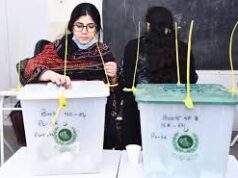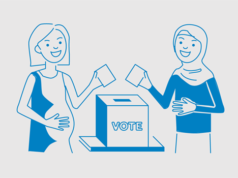A Love Story – Current Politics of Pakistan
Former Prime Minister of Pakistan Imran Khan (IK) feels betrayed by the security establishment in the midst of perambulation without the support that he had been used to. He conceded he hadn’t the full authority despite being the chief executive. He bewailed the military establishment for staying neutral in the state of crisis where he was on Haq and the rest of the parties were Batil. He threatened the country could dismember in three parts if the establishment didn’t support him in the long run. Such outrageous statements raise serious concerns. His hatred for SS-Zardari nexus put him in a position where he would prefer military intervention in political processes. His heinous discourse is extremely inimical to both national security and democracy.
 IK is critical of military intervention not because he wants them to be out of political affairs or because he wants civil supremacy to be upheld in a hybrid state like Pakistan, but because he is furious at being left alone without the support. Official social media accounts of PTI display the same rhetoric.
IK is critical of military intervention not because he wants them to be out of political affairs or because he wants civil supremacy to be upheld in a hybrid state like Pakistan, but because he is furious at being left alone without the support. Official social media accounts of PTI display the same rhetoric.
It’s not the first time, the military establishment has exercised its unlimited power: the fact is it has been casting its shadow over civilian affairs even when it hasn’t been directly in power.
While it’s an undeniable fact that unnecessary military intervention is a major reason for political instability that ultimately resulted in enfeeble democratic norms in the country. The sudden rise of IK after 2014 Jalsa and then in power is unconcealed political engineering carried out by the military establishment. They portrayed IK as the last hope of change. The love story between IK and the establishment didn’t go amicable. The hybrid regime work well for only three years, then the narrative of being on the same page shattered into pieces eventually. The differences over the appointment of the ISI chief added fuel to fire but there were also other issues that paved way for the breakdown of the relationship. Besides it, the flawed handling of foreign policy exacerbated the situation.
IK’s refusal to collaborate with the government on the issue of national emergency gives more room for the military establishment to be involved in parliamentary matters, which isn’t a good precedent for a fleeting democracy. It is evident that IK wants Army to intervene rather than try and find a political solution via dialogue. In fact, his rash stance could push the establishment more deeply into politics than ever before.
It is quite obvious from PTI’s policy that they don’t believe in democratic evolution, the reason is they are out of National Assembly. IK might have thousands of reservations about being ousted, yet it has never come through any unconstitutional intervention as we have witnessed in the past.

IK may jolt his supporters with the populist slogans of foreign intervention, but there is no truth to it. A vote of a no-confidence motion is part of a democratic process, even Indian PM Vajpayee lost the no-confidence motion by a margin of one vote but embraced it wholeheartedly. Democracy in Pakistan can only be strengthened if political leaders stop looking toward other institutions of the state and start resolving political issues in parliament.








